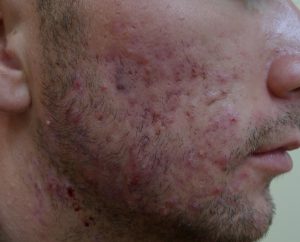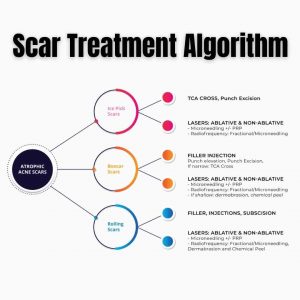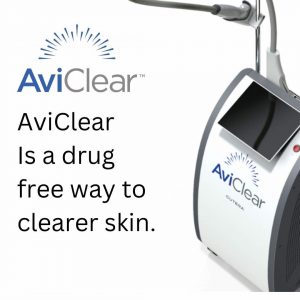Roaccutane Treatments At A Glance
- Best Results4-12 weeks
- Treatment RecoveryDuration 4-9 months
- Procedure TimeNA
- Skin SpecialistMedical dermatologist
- Duration of ResultsRemission in >60%
- AnaestheticNA
- Back to WorkNA
- Cost$
Roaccutane treatment for acne
Professional Roaccutane treatment:
Roaccutane/ Accutane/ Oratane is also known as isotretinoin. It is a form of vitamin A. This capsule remains as one of the most effective ways to treat acne and is restricted for use by dermatologists. It is vitally important to treat scarring forms of acne early- as this can prevent further scar formation. In severe cases of acne, Roaccutane maybe indicated. This form of treatment can have side effects, and careful monitoring by a dermatologist is needed. Research has shown that low doses of Vitamin A can also decrease scars, and help collagen remodel.
FactsFacts on Oratane / Roaccutane treatment
- This tablet is effective in treating acne in 99% of cases, especially in severe acne
- Over 60% of patients will receive long term cure after a course of this drug
- The average course of Roaccutane therapy is 4-9 months
- This capsule is a form of vitamin A and is used for the treatment of acne by Specialist Dermatologists
- Early & effective treatment of acne prevents future scarring
- Roaccutane remains as the most effective treatment of acne
- Scar revision can be performed in parallel with isotretinoin treatment in most cases
What is Roaccutane/ Oratane / Accutane?
This tablet is also known as isotretinoin and is a form of vitamin A called a retinoid. It has been the mainstay for the management of severe acne or scarring acne in Australia for the past 30 years.

Roaccutane works by targeting the oil glands, & reducing oil production. In lower does it can help remodel dermal collagen and reduce scar formation- including acne scars. The main aim however is to PREVENT acne scar formation.
Should I go on Roaccutane for my acne?


Roaccutane should only be used if your acne is severe, cystic or scarring. This can also be used to treat acne that is recalcitrant to other treatment methods. An assessment and discussion with a Dermatologist is needed to ascertain if you are suitable for this medication, as there are numerous side-effects associated with this drug. Additionally females will need to take extra precaution in regards to contraception – if applicable.
The flip side is that this drug is 99% successful in treating cases of acne. An average person will need a course lasting between 4-9+ months. Improvement is seen within a few weeks of starting this medication.
In severe cases of acne, an early and transient ‘flare up’ maybe seen, however your Specialist will undertake steps to minimise this side-effect.
What side effects can I expect on Roaccutane?
The most common side effect is dryness of the lips & skin. Universally seen common and very easy to manage. Moisturise frequently and you will sail thru the course of treatment. Use a lip balm at least 3-5 times per day, and moisturise your skin at least twice a day.
Some patients may get dry eyes on Roaccutane/ Oratane, and using eye drops may help, especially if you wear contact lenses.
Your dermatologist will also order specific blood tests throughout your treatment course, making sure your liver & cholesterol levels are in check. Female patients are warned in regards to the serious consequences in regards to Roaccutane/ Oratane and pregnancy.
Roaccutane – Accutane – Oratane are associated with other side effects that are less common including-
- Flare up of acne ( usually early in the course of treatment)
- Headaches
- Abnormal period cycles
- Muscle aches and pains
- ngrown toe and finger nails
- Abdominal symptoms
For full list of side effect patient should refer to the product information accompanying the prescription.
How long is a course of Accutane- Roaccutane treatment?
The course of Roaccutane/ Oratane is variable & will depend on many factors including the type of acne, your body weight, the location of your acne and the side effects you may experience on this tablet. As a guide-
- Average length of treatment 4-9+ months
- Severe acne involving bacne acne, truncal acne 10-12 months
- Low dose Roaccutane / Oratane program 14-20 months
Your Dermatologist will decide as to what is the optimal course of Roaccutane/ Oratane treatment based upon your acne type and your lifestyle.
Will my acne return if I stop taking Roaccutane?


Acne will be cured in >60% of patients who complete the course of Roaccutane. 30-35% of patient may need a second course.
There are several predictors as to the likelihood of a second course of this drug, including –
- Bacne, truncal acne
- Family history of acne
- Acne at an early age
- Severe cystic acne

View our Treatment Gallery
How soon after Roaccutane can I have laser treatment?

Patients who are on Roaccutane can undertake acne scar revision procedures. The exceptions are – fully ablative CO2 or erbium laser resurfacing or deep segmental of global peels (combination phenol -croton oil, or global Jesser-TCA peels). This is based on the published guidelines released in 2006-2017.
Fractional laser (deep fractional): Permitted
Full laser resurfacing for acne scars: Not permitted
TCA CROSS chemical peels: Permitted (focal not global)
Subcision: Permitted
Microneedling: Permitted.
Your treating specialist will be familiar with the literature – be guided by them.
How should I look after my acne scars whilst on Roaccutane?
Patients have 2 choices in regards to acne scars that are visible whist on Roaccutane/ Oratane therapy.
Firstly- be patient. Some scarring may improve on Roaccutane (though this drug is not designed to treat acne scars, some patients have an immune system that ‘self heals’ scars once the acne subsides. If you still have scars at the end of therapy your may go onto further scar revision such as Fractional laser or Full Laser resurfacing for acne scars, or even TCA Cross for your scars. Red scars can be treated with V Beam Vascular lasers.
Secondly patients can under take treatments such as vascular lasers, Tixel , low density fractional lasers or RadioFrequency whilst on Roaccutane. These treatments remodels scars at the same time as acne is being treated. These new treatments gently heats the dermal scar layers of your skin, remodelling acne scars gradually.
Book an appointment with my nurses for an assessment.

Can laser help with the redness of Roaccutane / Accutane / Oratane treatment?

Yes. PIE or post inflammatory erythema can be treated whilst you are on Accutane. Some patients may get redder and flush easier on this medication, and this is due to a few factors including sun sensitivity, dry skin & changes in your skin’s blood supply. Most patients will require 3-5 sessions, spaced 2-6 weeks apart.
Laser such as V Beam Vascular laser can reduce the redness of your face.
It is not about the device, it is about the concept of early & effective management of acne
.
.
🔫Device: My old eMatrix RF from 2010, think my SOP was around 80 mj per pin 2-3 passes. This can easily be replicated today with RF, RFM, lasers, & may other devices with the settings dialed in
.
.
👊🏻The Concept: is far more important than the treatment. With early & EFFECTIVE control of ALL inflammation, the skin’s immune system can work at max capacity to remodel collagen & hence reduce scarring. In this case I prescribed low dose isotretinoin & anti-inflammatories & titrated accordingly
.
.
🙄You can never get stronger quads if you have even the smallest muscle tear, hypertrophy will not happen. The same applies to skin. Background inflammation markedly reduces your ability to remodel collagen
.
😎Davin Lim
Dermatologist,
Brisbane🇦🇺
.
Disclaimer: My work is entirely procedural. I don’t manage acne, for appts, please
contact @clinic cutis
,
#acne #acnescars #scarrevision #scareraser OG #acnetreatments #acneskincare #cysticacne #acnetips
The algorithm of acne treatment changes with skin type
.
.
🔬Skin Science: Ethnic & darker skin types react differently to lighter skin. Firstly, PIH or post inflammatory hyperpigmentation is almost universal with inflammatory skin conditions for skin type 4 or higher. This can hang around for 5 years or longer. Secondly, fibroblastic response is exaggerated in darker skin, meaning higher incidence of #acnescars
.
.
👉👀Treatment Options: Comedonal acne, namely #blackheads & whitehead can be improved with #retinol, #retinoids, #microdermabrasion & chemical peels. Salicylic acid peels or BHA peels are more lipophilic compared to AHA peels.Sal acid peels have more anti-inflammatory properties cf AHA, ideal for #acne. Concentrations I use range from 8 to 30% BHA🍌🍌
.
.
👉👊Dermatologist use: Anti-inflammatory tabs, anti-hormone meds, topicals, #photodynamictherapy (not #kleresca), LLEDs & oral isotretinoin. PIH rx with usual topicals QSL & #picolasers
.
.
🏠Take home message: if you have uncontrolled acne with dark skin, probably best to see a dermatologist for early & effective control. The single most important factor contributing to acne scarring is the time taken to EFFECTIVE & in most cases ABSOLUTE control
.
.
Dr Davin Lim
Brisbane
.
Disclaimer: I do not treat acne. For medical conditions, please see my colleagues @cliniccutis they are 👍🏻💯
.
#chemicalpeels #accutane #skinscience #beautyscience #dermatologist #brisbanedermatologist #pih #skinlightening #cysticacne #blackheadacne #acnetreatments #acnecure #acnesupport #acnehelp #acneorg #acnehope #drdavinlim #davinlim
Will a course of Accutane treat my acne scars?
That is a difficult question to answer, as results are variable. Roaccutane is not designed as a treatment for acne scars, but a treatment to treat & cure acne. Treating active acne forms the foundation for acne scar management-ie. Find an effective treatment to cure acne and reduce the severity of acne scarring.
In regards to Roaccutane and acne scars the following facts apply-
- Some patients can receive mild improvement of acne scars on this drug. Low dose roaccutane has been shown to remodel scars and increase collagen production.
- Roaccutane patients can have most scar revision procedures whilst on this tablet.
- Early treatment leads to better clinical outcomes. Scars that are red and or less than 3-4 months old respond best.
What skin care should I use whilst on Roaccutane /Oratane Treatment?
Looking after your skin whist on Roaccutane/ Oratane is vitally important and can markedly reduce the side effects of this medication. Keep your acne skin care regime simple, and moisturise frequently!
Clean your skin twice a day with a low irritant cleanser- we recommend Cetaphil, QV Wash or Neutrogena Gentle wash.
Moisturise your skin twice a day– we recommend Cetaphil moisturiser.
Moisturise your lips 4-6 times a day, most importantly just before bedtime as this will reduce severity of ‘dry lips on roaccutane’.
Using a high factor SPF sunscreen twice a day can reduce the incidence of sunburn on this medication. We recommend La Roche Posay .
How much does a course of Roaccutane treatment cost?
The good news is that in the majority of patients Roaccutane is on the PBS so the average cost to the patient is between one to two dollars per day! Roaccutane is a Specialist only prescription, and is subsidised by the Government. This drug is obtained through an Authority script via your Dermatologist.
What to consider before embarking on a course of Roaccutane for acne?
There are several very important things to ask your self before considering Roaccutane treatment for acne, including –
- Am I motivated to undertake the full course of therapy (this ranges from 4-9 months on average)?
- Have I tried other treatments for my acne, including prescription creams, washes and tablets from my GP?
- In potential child bearing females- has adequate contraception issues been addressed?
- Am I dedicated towards the follow up appointments needed for patients on Roaccutane-Oratane?
- Am I ready to voice out any concerns to my treating medical dermatologist? There is no blood test for mood changes.
What is the best substitute for Accutane?
AviClear is a new laser due in 2023. It offers a highly effective cure for all forms of acne including mild, moderate & even severe cystic acne.

An AviClear acne treatment course requires only 3 treatments spaced one month apart.

Davin’s Perspective on isotretinoin treatment & acne scars
Isotretinoin has been the mainstay of treating severe scarring acne for nearly 3 decades. This drug is also used to treat resistant cases of acne that fail to respond to normal acne treatment. Patients who exhibit early scarring maybe a suitable candidate for this medication. Side effects are commonly seen, and all patients will need to be carefully monitored on this medication.
Most patients will require only one course of this drug. A course lasts between 4 to 9 months depending on the severity of the acne, and the location of acne. Truncal acne, or bacne patients will often require a prolonged course.
For patients who would like to avoid drugs & pursue a natural pathway, lasers & peels can be considered. AviClear is a new non-ablative laser in the 1726 nm wavelength. It will be in Australia in 2023. AviClear is FDA approved to treat all types of acne, ranging from mild to even severe cystic scarring acne. Three laser sessions are required, spaced one month apart. AviClear is well tolerated with a clearance rate of 85% at three months. Results continue to improve after the last laser treatment.

20-25% of patients relapse after one course of isotretinoin, and may benefit from a second course of medication. Be guided by your medical dermatologist.
Why treat scars whilst on Accutane? Since 2016, the consensus is that acne scars can be treated whist on isotretinoin. We know that early treatment of acne scars can provide far faster results with less downtime as compared to delayed treatments. Simple cost effective, non-invasive treatments such as RF, nano-RF, non-ablative lasers & Tixel can give outstanding results.

Disclaimer: I am not pro, nor against isotretinoin. This debate can be taken up with your treating physical or dermatologist. My work is entirely procedural, I do not treat acne. My views are solely directed at mitigating acne scarring through effective acne management. My focus is solely on effective control & remission of acne. This results in less scarring & lifetime results when I revise scars.

